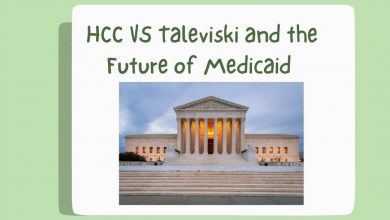Show’s Over: Ending The Miserable Cycle of LA Politics

Design by Alex Lynaugh
Image Description: Swirls of gray border a dark blue background, with bright green lines and stars accenting the gray. There is a light square in the top, center of the image illuminating the lower half of a standing person’s silhouette. A trail of dollar bills comes out of the light square and into the foreground.
If you’re reading this in Los Angeles, take a moment to think about the last few years in the city. Before the pandemic started, we had a host of problems that seemed unsolvable: houselessness and a housing shortage, air and water pollution, traffic, deeply entrenched inequality and segregation, and a rapidly increasing cost of living, to name a few. Even if you’re not in L.A., you can probably relate — we live in a scarcity economy, where even things like clean air and water, housing, and nutritious food are hoarded by the wealthy. And it’s disturbingly normalized: though we may bemoan the system’s unfairness, few are able to imagine a world in which everyone has equitable access to both the necessities and the pleasures of life.
One of the largest, slyest contributors to this fragmented apathy is the government. Not the federal government, though that’s important too, but local government — particularly the positions few pay attention to. When activists and organizers dare to articulate their visions for a more just world, critics demand to know exactly how it will be paid for. Unfortunately, without transparency about what our government actually does and where our money is really going, it can be hard to build a case against the persistent myth that our government would spend more on us if it just had a bit more money.
In fact, most governments have independent oversight built in, but these departments are often notoriously corrupt, underfunded, and restricted. Our equivalent is the L.A. City Controller, which is one of the most powerful positions in city government, on par with the Mayor and City Attorney. Kenneth Mejia, one of the candidates, agreed to be interviewed for this article to share his vision for restoring government transparency.
Do you understand your city’s budget? I certainly don’t — and that’s the point. When people try to dig into government finances, they’re often overwhelmed by circuitous budgeting laws, complex jargon, and a disturbing lack of accountability and transparency for a government that calls itself democratic. Sure, we may elect our representatives. But if the game is rigged to benefit those who make false promises, who accept funds from deadly industries, who belong to and perpetuate exclusive elitism, and who never face consequences for their actions — in short, political animals — what say do we have in their governance?
Practically every elected government official in L.A. County, for years, has run on decreasing houselessness and increasing affordable housing, but the problems have only gotten worse. So, when we ask for things our communities desperately need, lawmakers can hide behind budgetary complexity and the impersonal grinding of bureaucratic machinery to avoid helping the vast majority of their constituents who need assistance.
In theory, the City Controller is a financial watchdog, with the unique privilege of full independence. In practice, the Controller’s Office functions more like an HR department or a school therapist. It protects the government, guards its secrets, and drops crumbs of information when things start looking bad. According to Mejia, it also acts as a placeholder position for politicians who’ve stalled out or are waiting to move on to better things, protecting and enforcing the exclusivity of a small political class.
The history of the Controller and current field of candidates do nothing to improve the position’s reputation. No candidate, except Mejia, is a Certified Public Accountant, and only one other (David Vahedi) has accounting experience. Also running are Reid Lidow, former political aide; Rob Wilcox, former City Attorney spokesperson; David Vahedi and Stephanie Clements, both CFOs; and Paul Koretz, City Council representative of UCLA’s very own District 5. Of the last seven Controllers, going back to 1960, none have any accounting experience and most had careers in politics before being elected.
In this field, Koretz is the establishment candidate; he has the most donations* and endorsements. If elected, Koretz would be following a familiar trajectory: after beginning his political career in 1988 on the newly created West Hollywood City Council, he continued onto the California State Assembly and has served as the City Councilmember for District 5 since 2009. Tellingly, he has no campaign platform (the only sections on his website are biography, endorsements, and press).
Unlike the others, Mejia is a political outsider — a fact he’s proud of. His campaign is based on disrupting the status quo; in his own words, Mejia is running “to hold power accountable, because the city gets away with a lot.” He’s also the most qualified candidate, with over a decade of accounting and auditing experience. In addition to professional qualifications, Mejia has been involved in housing and tenant advocacy since 2016 and has worked with LA Tenants Union, the Koreatown Neighborhood Council, and other community groups.
Mejia is also the only candidate to reject corporate funding. Despite only accepting grassroots donations (the majority of which are under $200), his campaign has the second largest number of individual donation entries*, according to the latest campaign finance disclosures. It’s common sense that an independent watchdog should, in fact, be independent—making it all the more upsetting that it has become such a radical act. Nonetheless, it means Mejia’s popularity is entirely attributable to people wanting him to represent them.
Koretz leads the pack in other ways, though. He has the greatest number of campaign contributions from corporations and political action committees*, the strongest ties to real estate developers, police, and oil, and a dismal track record of caring, even minimally, about his constituents. In fact, Koretz’s office has 1.5 stars on Google Maps and the reviews are full of complaints that his office is unreachable. District 5 has the fewest affordable housing units of anywhere in L.A. and some of the highest average rental prices. Koretz is also the only candidate to have accused UCLA students in Students for Justice in Palestine (SJP) of being terrorists, and has an impressive history of focusing on unimportant issues while waffling on more ambitious legislation.
Most importantly, though, he is a political animal. Koretz seems to be driven by personal benefit—by what he can get from political office—rather than what a political office can get from him, and that he will lie and keep secrets to. Despite claiming to care deeply about the houselessness crisis, he has consistently failed to advocate for affordable housing and opposes zoning changes.
Perhaps this would be more understandable if he truly cared about preserving his constituents’ neighborhoods—but that seems improbable. In 2016, he supported a controversial development project before it was revealed the developer had donated $2,200 to his campaign. This by no means makes him exceptional — more politicians than we will ever know of are horribly corrupt — but his string of financial scandals and voting against budget transparency certainly makes him a poor choice for the government’s financial oversight office.
Remember all the issues we talked about from before the pandemic? Well, they’ve gotten worse, and the closed circle of L.A. political elite have remained in power the whole time. Houselessness has increased, yet city officials continue to mismanage the crisis. The pandemic is formidable in any circumstance, but the L.A. government has made its impact immeasurably worse.
At the beginning of 2021, the federal government announced that it would increase its reimbursement rate for city programs that house the unhoused in individual rooms (often in empty hotels and motels) to 100%, up from 75%. After this change, however, L.A. actually scaled back their housing program, Project Roomkey, and failed to file for reimbursement. The reason, according to city leaders, was “cash flow” problems.
This is the flimsiest of excuses, as current Controller Ron Galperin explained at a neighborhood council meeting on April 12, 2021: “The point that I’ve made repeatedly is that if the issue is cash flow, we and our office, we can solve that cash flow issue. That should not be the impediment.” The program was deficient in other ways too, with former residents describing carceral conditions in converted hotel rooms.
The violent LAPD sweep in Echo Park that killed at least seven people and left more than 82 unaccounted for was also in early 2021, when federal COVID relief funds were being distributed to cities nationwide. According to Mejia, the sweep cost an estimated $2 million, and was subsidized by those relief funds. Last spring, L.A. diverted 50% (over $300 million) of these funds to the LAPD — a fact you won’t find in any publicly available documents.
When asked what he would have done had he been in office during these events, Mejia offers a slew of suggestions, including supervising how federal relief funds were spent; monitoring the conditions of programs like Roomkey to ensure people are being treated with dignity; and conducting a cost-benefit analysis on encampment sweeps to understand how they compare with other strategies to decrease houselessness. His most important suggestion, however, is something he’s already done: radical transparency. This encompasses making information publicly available and easy to find, and ensuring that the information is communicated in a way the average person can understand (i.e. without political/financial jargon).
If it weren’t for Mejia, we wouldn’t know about any of this. Without being elected, he has already begun blowing the whistle on financial waste and misuse — and encouraging others to get involved. In fact, Mejia’s campaign has already created multiple, freely available online resources, including a concise budget breakdown, an interactive map of affordable housing units, a map showing where people are most likely to be stopped by the LAPD (that can be filtered by race), and a payroll map (a surprising amount of our tax dollars go to city employees that live out of state).
This information would not be accessible without unpaid volunteers of a local political campaign spending hours filing public record requests, sorting through documents, and creating databases. If elected, Mejia would be able to scale up this work with a team of over 160 employees. To ensure the Controller’s work is driven by Angelenos’ needs, Mejia plans to implement weekly Zooms and Twitch streams to provide updates and educate people on how to use city websites and understand financial documents, as well as creating a message board or email that will respond to all messages within a week. In these suggestions, Mejia reveals a unique talent for bridging the gap between big data and normal people, based on his firm belief that the people, empowered with information on their government, will be more effective at creating change than any legislator trying to reform the system from inside its belly.
Near the close of our interview, I asked Mejia why college students should pay attention to the Controller race; after all, we’re busy, tired, and it seems like nothing will ever change. His response was strikingly clear-sighted: “Everything touches money, and if it touches money you have to account for it. If you account for it and make it known, you have all the power and knowledge in the world.” From too many cops to too few sidewalks, the Controller can and should investigate issues that matter to residents and make their findings publicly available. We have a right to know how our money is being spent, and Mejia’s campaign has proved that voters are neither too stupid nor too lazy to understand politics and finance — we just need access to the information.
Two years ago, I wrote an article for FEM Magazine called “The Case Against Voting,” in which I questioned the belief that voting is a productive way to enact political change. Though it mainly focused on presidential politics, many of the arguments apply to elections at all scales. While it is more impactful to vote in local races, it’s also easy to become disillusioned by liberal politicking and the quiet dismantling of leftist and socialist campaigns by party leadership.
This is where Mejia is different from other ‘leftist’ candidates: rather than pouring all his resources into trying to win an election that’s rigged against political outsiders like him, Mejia splits his time between campaigning and working for the community. Even if he loses the election, they have already made a tangible impact on politics. His campaign has over 800 volunteers, many of whom began working with local mutual aid groups after this initial exposure to community activism. Elected or not, Mejia is doing what it takes to create change: using his skills to empower people with knowledge, using his platform to blow the whistle on financial waste, and passing down the lessons he learned as an organizer to the next generation.
This is why I’m cautiously excited about the Mejia campaign, even though I still believe the American government is an illegitimate institution and electoral politics are an illusory distraction from systemic violence. He’s not approaching this as a politician, nor is he trying to change the system from the inside. Instead, he’s approaching it as a community organizer — a concerned citizen — who wants to know what the government is hiding, and believes everyone else has a right to know too. Most importantly, he is proof that there are alternatives to the status quo.
Unlike progressive candidates who promise to change the system from the inside out, Mejia is proving that we can and should expect more from our political candidates. We don’t need to believe their false promises when we can demand they show their commitment with action — before they’re even elected. Nor do we need to send emails to addresses that aren’t checked if our representatives make listening and responding to our concerns a central part of their job.
If a democratic government cannot persist without hiding its inner workings, it has no legitimate claim to existence. If our country would crumble if its classified documents were released, let it be destroyed. Why should we trust a government that knows everything about us but reveals nothing of itself? An inscrutable institution designed to slow change and repress the people’s will isn’t representative democracy. It’s a charade, and it’s time for the curtain to fall.
*To search for campaign finance data on the city’s ethics website, select your option(s) and press search. To research campaigns mentioned in this article, choose “candidate/officeholder” in the Committees section, and choose your desired candidate. Filters can be applied before or after searching.




